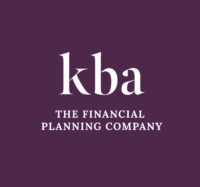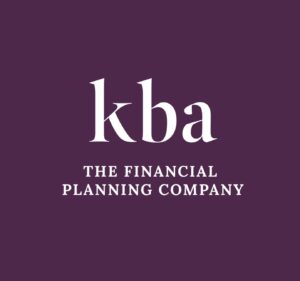When you’re preparing for retirement, you need to make sure you organise your finances. When you stop working, a change in lifestyle is inevitable. And the income you have and the money you spend will change accordingly.
Five years before your retirement is the ideal time to get your finances organised. Deal with your finances now and, by the time your retirement date arrives, you’ll be ready to begin this next chapter without worrying about how you’ll fund your new lifestyle.
Here are seven steps you should take in the five years before you retire.
1. Understand what you’ve already accumulated
Start by figuring out how much income you can expect to receive when you stop working.
Your income will probably come from several sources. Spend some time working out what money you have and where it is. This should include:
- What you can expect from the State Pension: get your State Pension forecast from the government website. This will tell you how much you could get, when you can get it, and whether it’s possible to increase it. At the same time, check your National Insurance record. Here you can find out if it’s possible to pay voluntary contributions to make up any gaps, which could boost the amount of State Pension you receive.
- Get up-to-date statements on other pensions: You should receive an annual statement from any pension scheme you’ve been a member of. These statements will include an estimate of the retirement income the pension pot might generate.
- Track down any pension statements you haven’t received: If you remember who the pension provider is, contact them for an up-to-date statement. If it was a work pension and you don’t remember the provider, ask your former employer for the details.
- Chase down lost pensions: Use the Pension Tracing Service to track down lost pensions.
- Include everything: Retirement income doesn’t have to come from a pension. You may have other savings and investments you plan to use. It’s important to include everything, so be thorough and list exactly what you have.
Pulling everything together might feel overwhelming. But if you don’t start here, you won’t be able to get a realistic idea of what your income might be.
If you’re struggling to find the time to get your head around things, we can do a lot of this legwork for you and help you work out what you have.
2. Consider whether your pension savings are in the best place
Should you find that you have many pensions with several providers, you could consolidate them. Consolidating your pension has three main benefits:
- There’ll be less to keep track of
- You may find you can reduce the charges you’re paying
- It could be an opportunity to improve growth potential.
As with many things in life, there are also drawbacks to putting all your pension savings in one place. For example, some pension schemes come with additional benefits that you’d lose if you moved your pension money elsewhere.
Moving your pensions into one place may also cost more than you would gain. It’s wise to speak to a financial planner who will be able to help you understand if moving your pensions to one provider makes sense for you.
There are a range of important considerations when you’re thinking about consolidating pensions. Get in touch and we’ll help you understand all your options.
3. Imagine life in retirement and draw up a plan to make your dream a reality
What do you want to do when you stop working? The plans and ideas you have will dictate how much money you’ll need to fulfil your lifestyle goals.
Dig out your bucket list and imagine a new life. If you’ve never made a bucket list, now is the perfect time to do so. Don’t hold back, try everything on for size and imagine all the possibilities of how you really want to spend your time once you’re retired.
Then you’ll be ready to make your financial plans fit around your expectations.
4. Get to grips with your income requirements and where to draw it from
Once you know what money you have, where it is, and how much you expect to spend when you retire, you’ll be ready to think about where to draw your retirement income from.
If you have plenty of wealth invested in ISAs, you may find it better to draw an income from here, and leave your pension invested. This has tax benefits and may also mean you can pass more wealth to your beneficiaries without incurring Inheritance Tax.
Planning for a tax-efficient income in retirement is complex and often has long-term implications. We can help simplify things. We’ll work with you to bring clarity to your finances and make sure your retirement income is tax-efficient and sustainable over the long term.
5 years before retirement is the ideal time to assess your investments
With a clear picture of what pensions and investments you have, you should know how your money is invested. The investments you have can be crucial to the success of the fund and will affect the amount of income you have to retire on.
Consider how much risk you’re comfortable with.
With your retirement still a little while away, perhaps you want to look to invest for more growth. Higher-risk investments have the potential for better returns but come with a higher chance of sudden short-term losses.
If you choose this route, be sure you can stomach this. As your retirement date draws closer, a sudden drop in pension value could affect your well-laid plans, and it could take time for your savings to recover.
If this idea worries you, you may prefer to avoid risking what you’ve accumulated to date. If so, you might want to move any money you have in high-risk investments somewhere safer, like bonds.
Buying an annuity might be right for you
If your pension pot is small and you want to secure a guaranteed income, an annuity could offer welcome certainty.
There are many choices about where you can invest your money and how to draw your income in retirement. If you’re unsure about what would be best for you and want to get a clear understanding of all your options, get in touch.
5. Consider ways you can grow your income
The absolute best way to reach retirement is debt-free.
Reduce the cost of your debts in the five years leading up to retirement and you’ll increase the income you can spend on maintaining your desired lifestyle when you’re no longer working.
If you can retire without a mortgage, you’ll have more money for the important things in life.
6. Boost your retirement pot
If you think your retirement income is going to fall short of your expected outgoings, there’s still time to boost your income. Options include:
- Increase your regular pension contributions
- Continue to work and give your money more time to grow
- Pay a lump sum into your pension.
You can pay money into your pension whenever you like, although the sooner you do this, the longer your money will have to grow.
Try to avoid thinking about your retirement as a cliff-edge. Instead, approach it as a transition.
If you need to save more before you retire, you’ll continue to benefit from tax relief.
The Annual Allowance allows you to contribute 100% of your earnings into a pension, up to a maximum of £40,000 per year. You could pay in more than this using carry-forward, which allows you to use any Annual Allowance you have owing to you from the previous three tax years.
There are other allowances you can take advantage of too, including your annual ISA allowance. If you have a spouse, you can effectively double available allowances, so it’s essential to plan your retirement together.
If you’re nervous about being able to afford the retirement you want, consider part-time work. This could allow you to enjoy some freedoms of retirement while providing a handy income.
7. Think about tax planning for your future income and future generations
As well as making the most of tax allowances before you retire, you also need to consider how you can plan to mitigate tax liabilities during your retirement and when and how you pass your wealth on to your loved ones.
Thinking about your long-term plans now will help ensure that you take steps to transfer your wealth to your loved ones according to your wishes.
If your retirement is on the horizon and you’d like help preparing your finances ahead of this exciting life change, get in touch. Email us at contactme@kbafinancial.com or call us on 01942 889 883.
The value of investments and any income from them can fall as well as rise and you may not get back the original amount invested.
HM Revenue and customs practice and the law relating to taxation are complex and subjected to individual circumstances and changes which cannot be foreseen.



